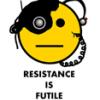No - go back and read the post. It's says "health care insurance is considered to be a basic human right so everyone now has been mandated to purchase health care insurance."
I'm quite familiar with the UNDHR - and while Art. 25 might say everyone is entitled to "medical case and social services," the UNDHR doesn't mandate everyone purchase health insurance. Plus - the UNDHR is, frankly, a meaningless piece of paper. Take the UNDHR into a Doctor's office and tell them you demand the health care as contemplated by the UNDHR.

I'm not confusing the two because the only rights you have are those set forth in the Constitution. Other than those limiting government power - you've got none in this Country.
Like I said - if the person who posted that is really a student of political science - and of the Constitution - he/she would challenge the thought that health care is a "right."
While access to health care may not be enshrined in the Constitution, Congress has (for better or for worse) pretty much made it so by mandating that no1 be denied coverage based on gender, age, and previous/future health conditions. To further ensure that everyone has access, they have mandated that everyone buy health care (or pay a fine if you refuse).
I do not agree with the individual mandate, I believe we should all have the freedom of choice. However, we now have the right to access health care free from discrimination.
You do not need to have a "right" enshrined in the/a Constitution to make it a "right"; there are many examples throughout our nation's history that proves this; here are a couple:
1) While marriage is being debated on right vs. privilage; couples have the right to marry someone of an opposite race
2) In CA, our state constitution does not provide for non-discrimination protections for LGBTQ students; yet as a gay student, I have the right (set forth by judicial rulings and state law) to go to a public school free from harassment and discrimination.
----------------------
Here are a few rhetorical questions for y'all:
If you had a drug that would make a person immune from every disease for 30 years in a single dose, would you distribute it for free? or would you only give it to the people that had the money to pay? Would you want access to the pill if you were a person that had no money?
Do we, as a society, have a moral obligation to ensure that everyone has access to the same resources in life (water, food, medicine, shelter, clothing)?
In a capitalist society, should morals ever take priority over profit?
------------------
As a former Catholic, some of the lessons I was taught still guide my decisions and beliefs to this day. As such, I believe that if we have the resources/services to help make sick people healthy, keep disease from spreading, and promote the general well-being of our society, then we need to do what we can to make sure people have access to those resources/services.

















